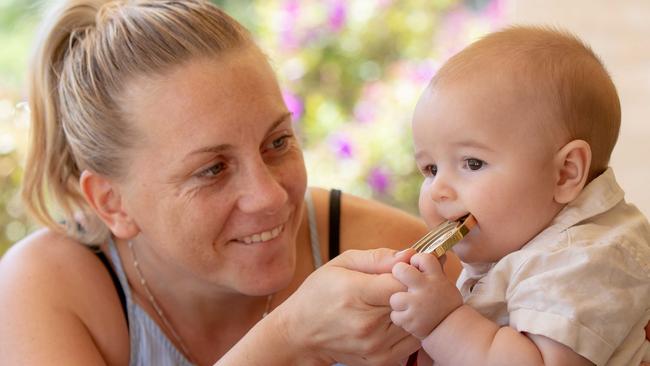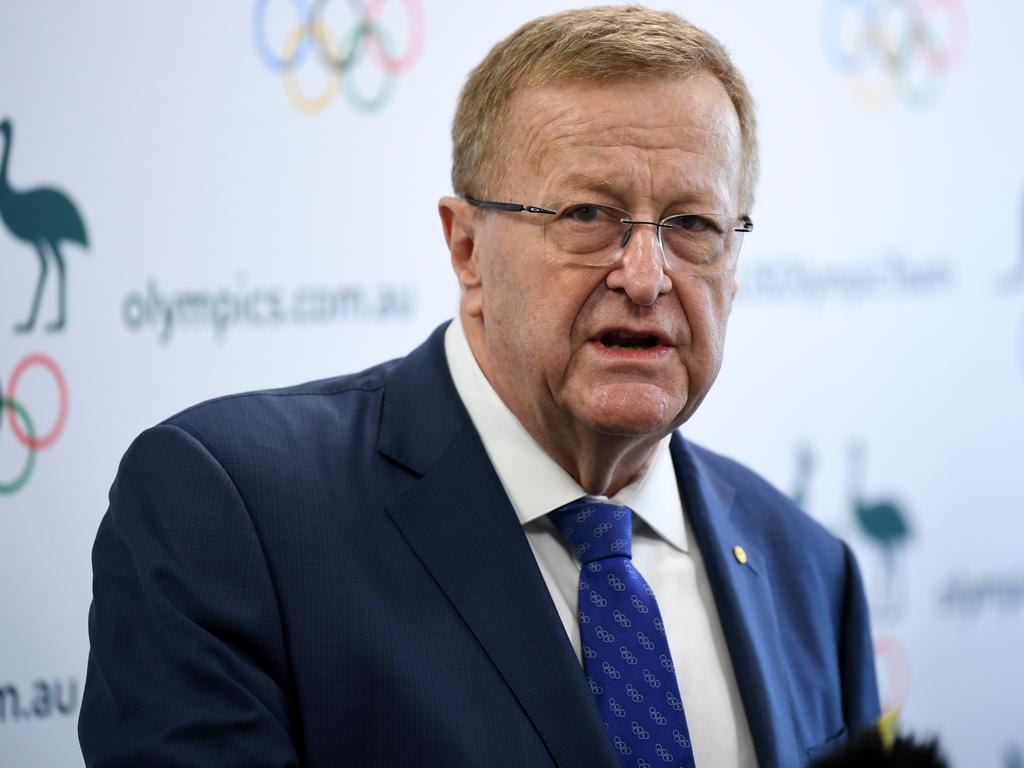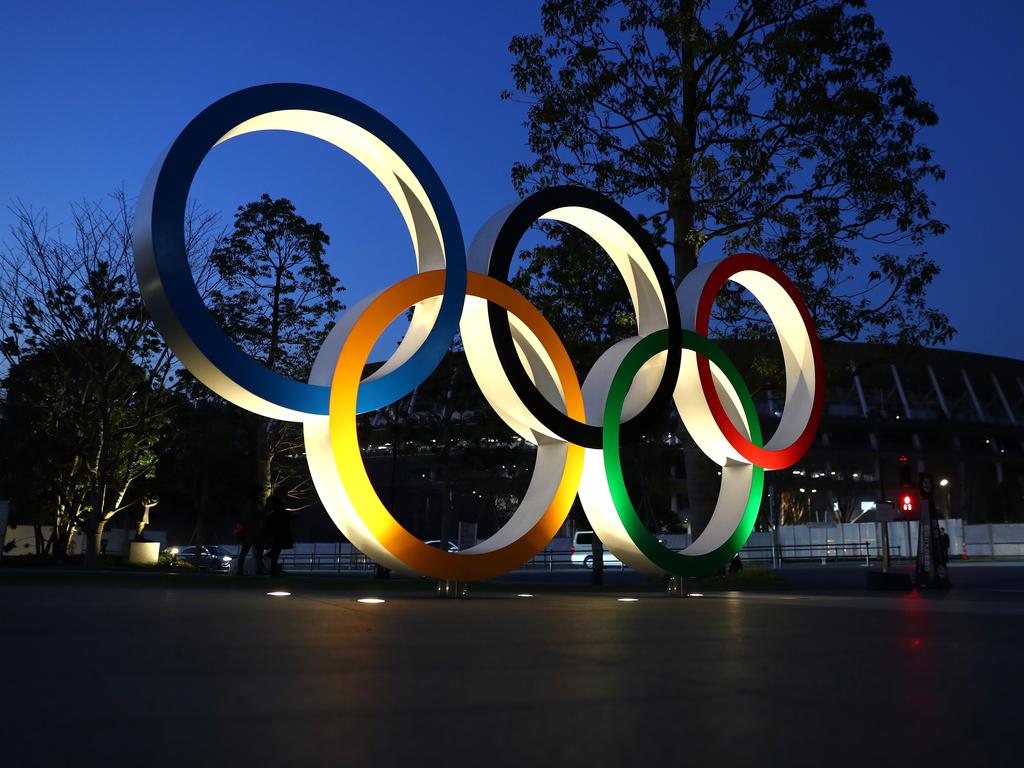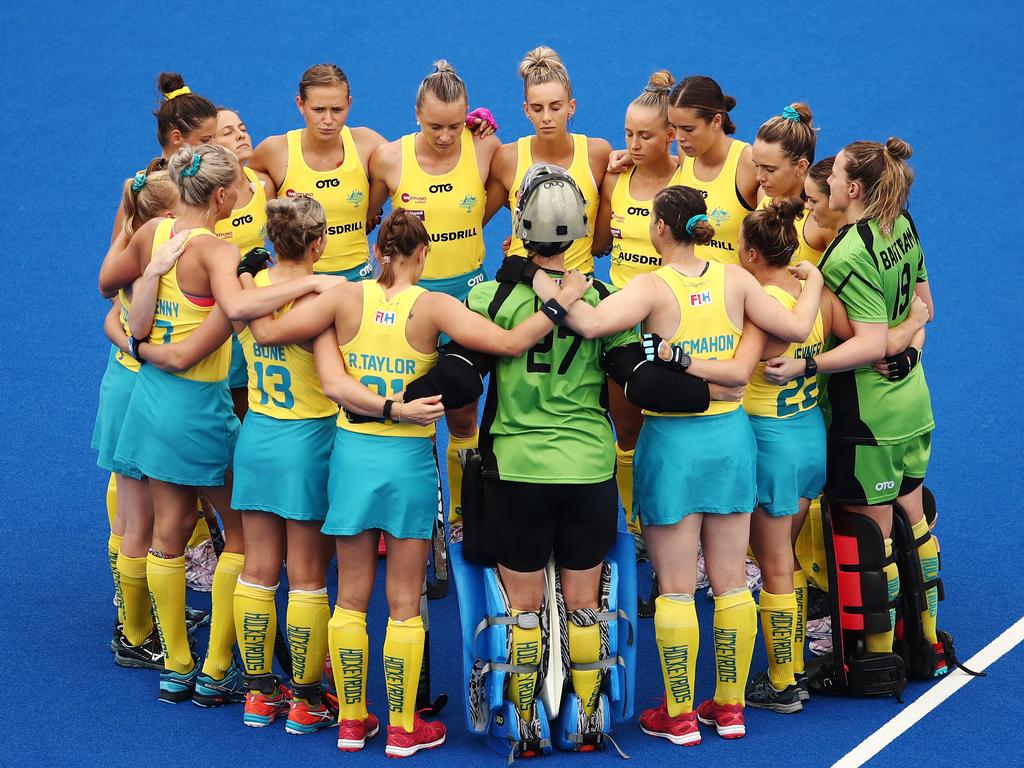Boxer Shelley Watts and the high price of representing your country
Boxer Shelley Watts returned from the Rio Olympics broken and broke.

Boxer Shelley Watts returned from the Rio Olympics broken and broke.
Watts, who sold chocolates and T-shirts to help fund that Olympic campaign, says the sacrifice to just make an Olympics can have a brutal toll on sporting minnows.
In the year lead up to the Rio Olympics, Watts was performing well enough on the world stage to earn $26,000 in “dAIS funding” — a direct cash grant from the federal government available to athletes in Olympic, Paralympic and Commonwealth Games sports.
Back then Watts was also the only resident on, as she put it, the “ghost town” AIS campus, to make the Rio Olympic team. Boxing Australia paid $630 a week for the AIS rent, which included food, and she had access to physiotherapy and sports medicine services.
She went to Rio, she performed strongly, but not well enough to justify future money under the AIS’s current funding model.
“I came ninth in Rio. I had everything cut,” Watts said. “I had no services, no facilities, I had nothing. Absolutely nothing when I came home.”
She remembers her return from the Rio Games, being financially destitute, as an awful time. She’d been on the high of being part of the Olympic team and the emotional crash was huge, not just because she didn’t win a medal.
“I was distraught,” Watts said. “When I got home, I had no help and no assistance. I found myself lost. I didn’t have a coach to fall back on when I came home. No permanent accommodation. I had to fend for myself.
“I tried to get a few things to get back to myself, I am not going to lie, there were a few years where my taxable income was zero dollars.”
“My superannuation is shot. I am 33 years old and I have nothing in my super.”
Watts has taken a hiatus from her Olympic career, and that’s because she says she fortuitously fell pregnant with her first baby Chase. “He was a very firm sign I needed to stop,” she said.
Watts had baby Chase last September and a recent Facebook post from a fellow Australian athlete putting out the call, like she had many times before, for charitable donations to their Olympic dream, reminded her of what her life used to be like.
“I felt a massive sigh of relief reading it because it’s something I didn’t have to worry about anymore,” Watts, a 2014 Commonwealth Games gold medallist, said.
“You have to train so hard, put your body through the ringer, and you mentally have to put yourself through that as well preparing for an Olympics. But to also worry about where the money is coming from is really stressful.”
“I know for a fact that Boxing Australia can’t take all of their athletes to the world championships. It’s a pretty dismal situation; that you are representing your country and you have to pay your own way to a world championships.”
As it currently works, those athletes considered the best chance to win a medal receive more funding under the dAIS scheme.
Athletes are nominated for this funding by their national sporting organisation. If an athlete achieved a top-eight result at a recent world championship level event and is expected to maintain that level of performance, or demonstrate potential to achieve a podium result at a future world championship level event, they will be awarded the grant.
Swimmers such as Olympic champion Kyle Chalmers and world champion Ariarne Titmus have received $43,750, and $52,500 respectively from the dAIS program for the last two funding cycles heading into Tokyo.
An average of 850 athletes per year are supported by dAIS. In the last two funding cycles just over $28 million ($13,990,000 in 2018-19 and $14,303,000 in 2019-20) in dAIS funding has been granted — the annual amount to dAIS from high-performance funding is determined by the board of the Australian Sports Commission.
The Australian’s Games Over series this week has highlighted the funding plight of sports and athletes who are facing budget cuts if they don’t perform — in the Hockeyroos case they have already been informed they will lose 60 per cent of their funding because they are not forecast to win a medal in Paris 2024.
Today Watts says she is relieved to be in an Olympic year and not to be “putting her hand out constantly” to those around her. She is grateful she has the focus of a baby in her life.
While her time as an Olympian was incredibly rewarding, it is clear she is still paying for it.
“Unless you are one of those amazing athletes like say Jessica Fox or Cate Campbell — they are amazing athletes and human beings — if you are not one of them, your opportunity to get sponsors is very, very low,’’ Watts said.
In the corner of her Port Macquarie home sits a box of T-shirts. She doesn’t know what to do with them.
“I am one of less than 4000 Australians who have represented their country at an Olympic games — I had to sell T-shirts and chocolates to be able to make money to make my Olympic dreams happen,” she said.
“Financially, for many athletes, I know it feels impossible to come out of a Games not in debt.”








To join the conversation, please log in. Don't have an account? Register
Join the conversation, you are commenting as Logout